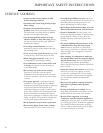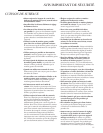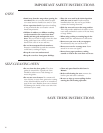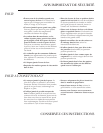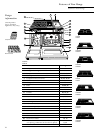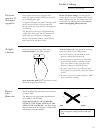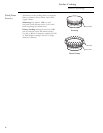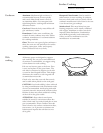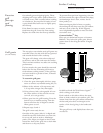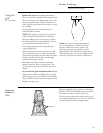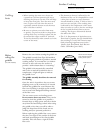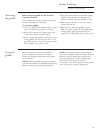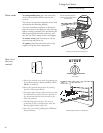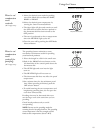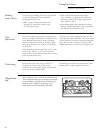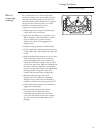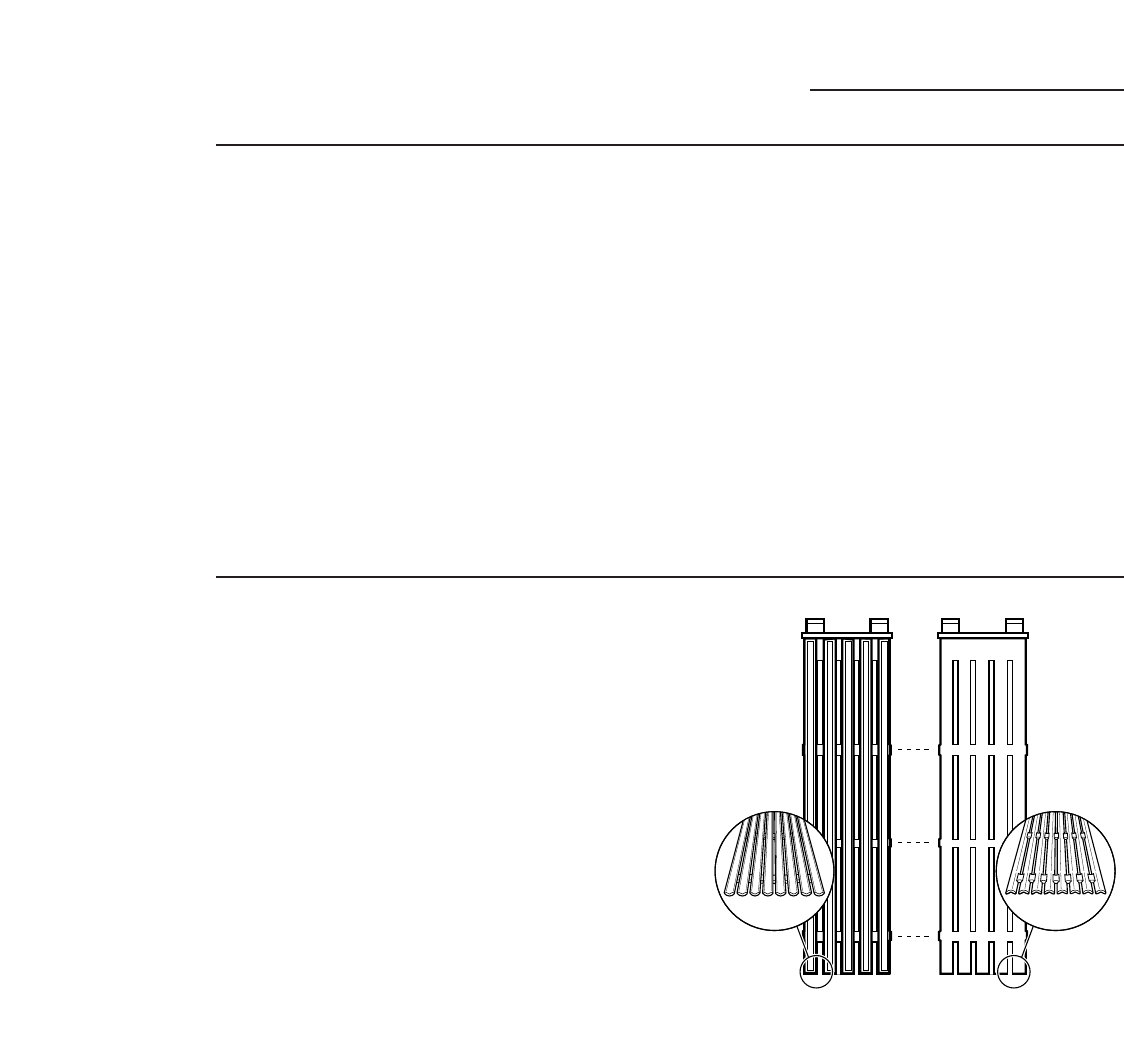
18
Grill grates
(on some models)
The two-piece cast stainless steel grill grates are
reversible. Place the side with the two grooved
tabs toward the back of the cooktop.
The grate will change color when subjected
to the heat, and as oils cook onto the surface.
This is normal and does not affect the cooking
performance.
For best results, the grate should be seasoned
before the first use. Seasoning will insure a
stick-resistant cooking surface. If the grill has
not been used for a period of time, it should
be reseasoned.
To season the grill grate:
1 Clean the grate thoroughly with hot, soapy
water to remove any manufacturing oils, etc.
2 Rinse with a mixture of 2 cups water and
1/2 cup white vinegar. Dry thoroughly.
3 Using a heavy cloth, rub vegetable oil over
the entire surface of the rack. Do not use
corn oil, as it can get sticky.
4 Place grate into the grill housing. Turn the
burner on to a medium setting. Turn the
burner off when the oil begins to smoke.
Allow grates to cool.
5 Repeat steps 3 and 4.
The grill is now ready for use.
One side of the grates (side A) is ridged and
should be used for foods where you want the
fat to run off, such as steak or hamburger
patties. The ridges are sloped so the fat runs
toward the front of the grill, into a drain hole
and down to a drip tray below.
The other side of the grate (side B) is designed
for delicate foods that need more support
while cooking, such as fish.
Food cooked on this side achieves the same
flavor as food cooked on an outdoor grill. The
intense heat from the grill radiant caramelizes
the fats and juices that are brought to the
surface of the food, giving it the barbecued
flavor.
This gas grill may cook slightly faster than you
are used to.
Excessive
grill
flare-ups
and
flaming
Occasionally grease drippings ignite. These
drippings will create minor puffs of flame for
a second or two. This is normal when cooking
on a barbecue. You may find it handy to have
a spray bottle filled with water to lightly spray
the flare-up.
If the flame becomes excessive, remove the
food from the grill. Lower the heat setting.
Replace the food when the flare-up subsides.
To prevent flare-ups from happening, trim the
fat from around the edges of steaks and chops,
use hamburger that is lean, remove the fat
from poultry, etc.
When turning any kind of meat or poultry,
the melting fat will drop onto the grill radiant
and may create a flare-up. If this happens,
use a long-handled spatula to move the food
to another area.
Gourmet Radiant
™
Tray
Flare ups are minimized because a Gourmet
Radiant
™
Tray, below the grille grate, directs
grease down to the drip pan before it begins
to burn.
Surface Cooking
Stainless Steel Range
Side A Side B



